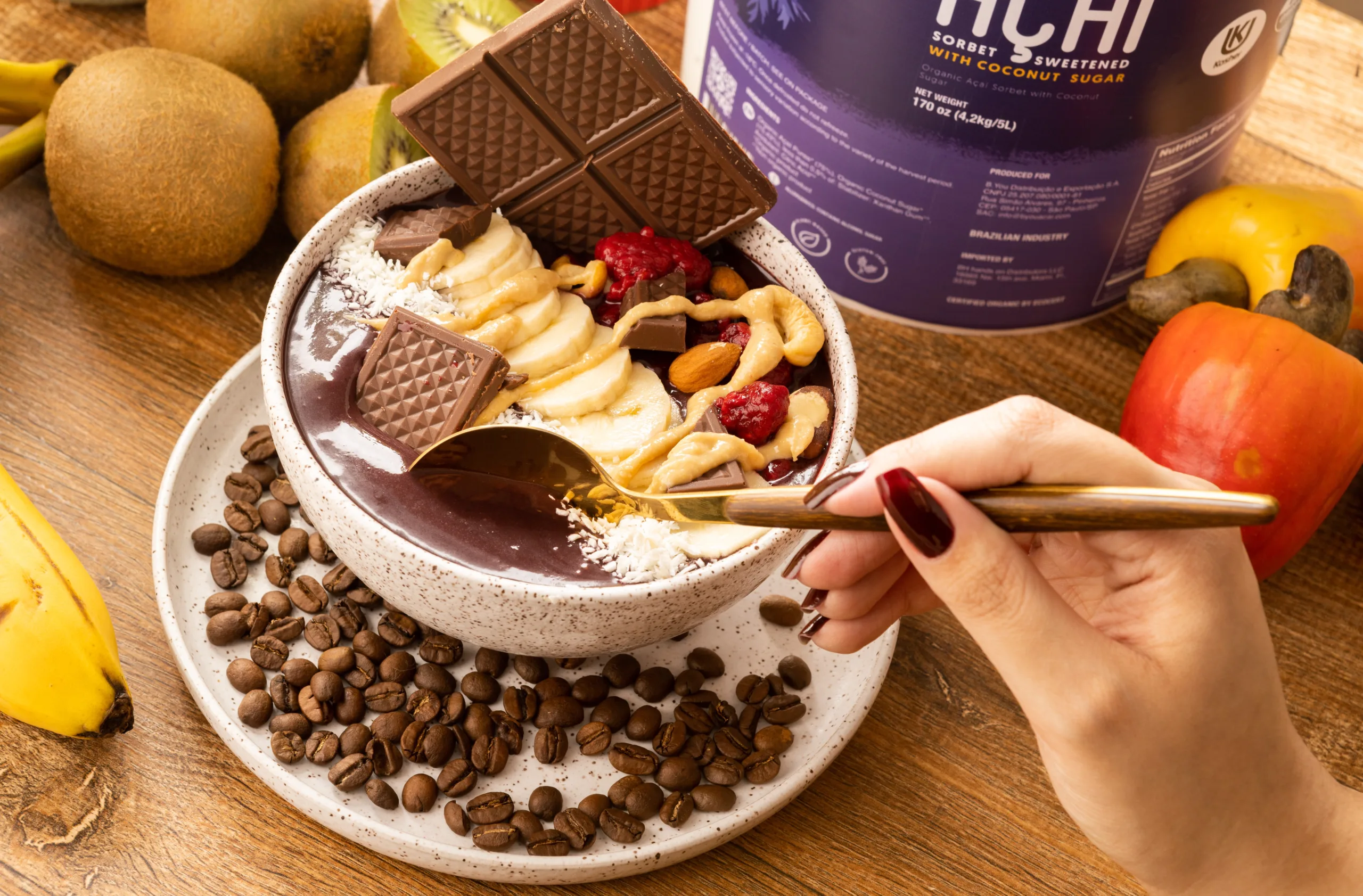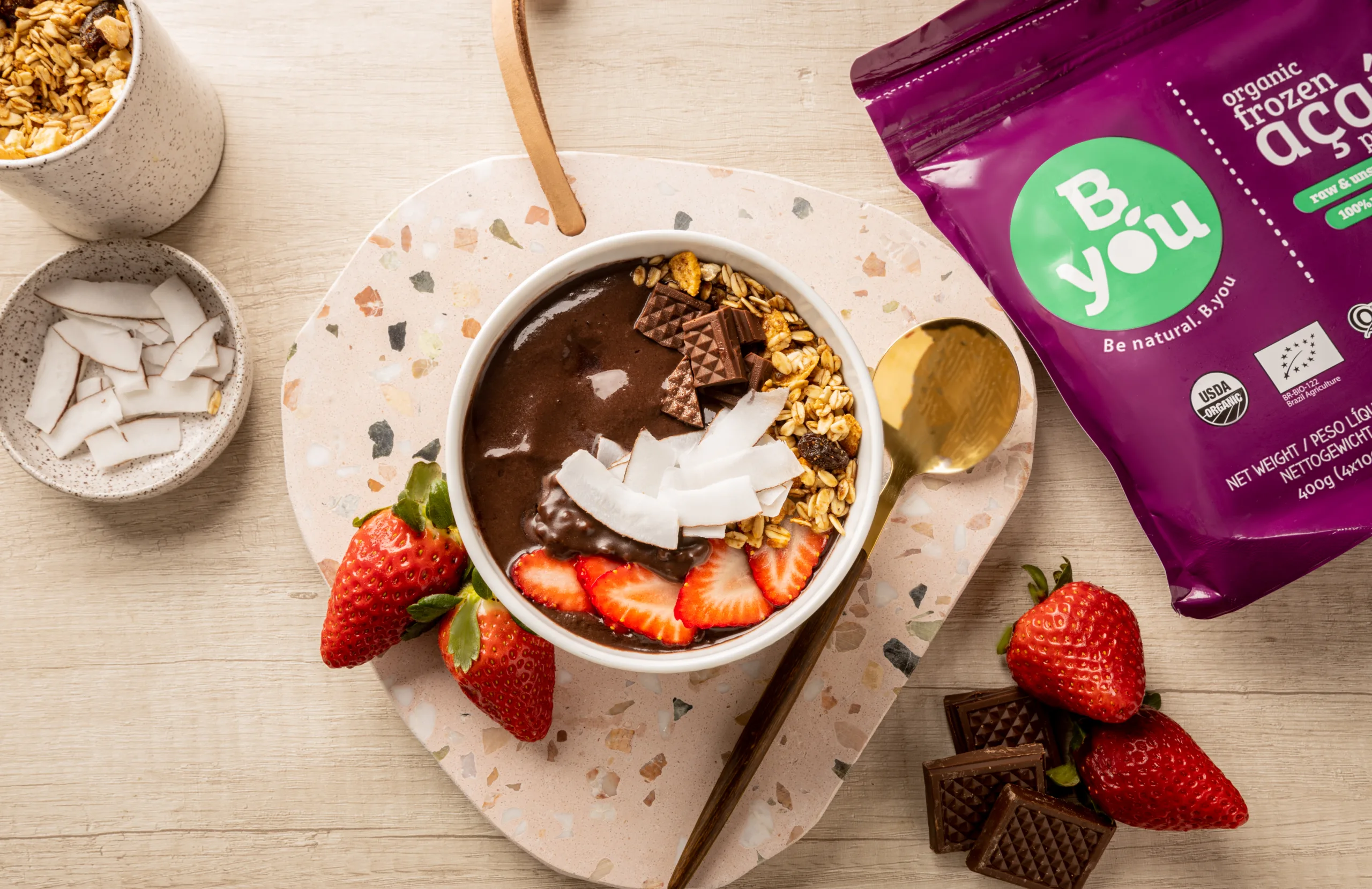In a world where health is paramount, Thailand’s organic food market is on a soaring trajectory. With a current value growth of 9.2% in 2021, reaching a value of US$25.5 million, the demand for organic packaged food and beverages is flourishing. But this growth is more than just numbers; it represents a powerful movement towards conscious consumption and a quest for a healthier, more sustainable future.
One of the leading drivers of growth in the organic packaged food sector is organic breakfast cereals, boasting a remarkable increase in value by 12.1% in 2021. People are waking up to the importance of starting their day with nutritious and wholesome options. Organic fruit/herbal teas have also witnessed a surge in popularity, recording a current value increase of 4.4% in 2021. As wellness warriors embrace the benefits of herbal remedies and seek solace in a comforting cup of tea, the demand for these organic beverages continues to rise.
But what has fuelled this organic revolution in the Thai market? The answer lies in two influential factors: the government’s sugary beverages tax and the Covid-19 pandemic.
Initiated in 2017 and scheduled to conclude in October 2024, the Thai government’s 4-stage sugary beverages tax has prompted manufacturers to reconsider their offerings. Reduced sugar and zero-sugar options have become the new norm, as companies strive to create naturally healthy and better-for-you products across carbonates, juices, RTD coffee, and RTD tea. This push towards healthier alternatives has not only aligned with the public’s increasing concerns about excessive sugar consumption but has also paved the way for innovative product developments.
The Covid-19 pandemic has acted as a catalyst, further propelling the growth trend in fortified/functional beverages. Keen on bolstering their immunity and overall health, consumers, particularly the younger generation, have shown a heightened interest in fortified and functional drinks with high vitamin content. As a result, manufacturers have been fervently exploring this category, expanding their portfolios to offer beverages that provide an extra dose of health benefits. Additionally, the better-for-you category has witnessed the introduction of healthier options, such as no sugar beverages, as the demand for conscious consumption continues to surge.
Fueling this health-conscious movement is a rising awareness regarding the importance of a wholesome lifestyle. Consumers are proactively seeking products that contribute to their overall well-being, driving growth and innovation in the fortified/functional category. In the domain of hot drinks, fortified functionalities have become synonymous with herbal content and herb extracts, catering to the discerning tastes of health-conscious individuals in Thailand. Local players in the market, armed with their profound knowledge of local herbs, have a distinct advantage in offering products that resonate deeply with the unique needs and preferences of the region’s consumers.
Thriving on the pursuit of healthier alternatives, Thai consumers are increasingly gravitating towards zero sugar carbonates, reflecting their conscious choice for beverages that align with their wellness goals. Responding to this demand, manufacturers have risen to the occasion, developing new formulations for sugar-free soft drinks. Coca-Cola’s Fanta, for instance, introduced zero sugar carbonates in delightful orange and strawberry flavors in February 2021, capturing the essence of health and taste in a single bottle. Major players in RTD coffee, such as Birdy and Nescafé, have honed in on the growing trend of consuming coffee without added milk, sugar, or sweeteners. Their focus on black coffee and Americano products attests to their dedication to meeting the evolving needs of health-conscious consumers.
To ride the wave of the sugar tax hike, players in the better-for-you hot drinks category are poised to embrace new developments. Experimentation with new formulations, leading to the launch of low or reduced sugar products, is on the horizon. Brands like Birdy and Khao Shong are set to expand their portfolios with reduced sugar coffees. Birdy was at the forefront, introducing a 3-in-1 instant coffee with 25% reduced sugar in October 2020. Khao Shong, too, embraced the movement by introducing a wide range of products with 50% less sugar. The reduced-sugar beverages category is poised to experience higher use of sweeteners, with companies incorporating natural ingredients such as stevia to enhance taste and flavor, ensuring the better-for-you reduced-sugar beverages leave nothing to be desired.
Beyond business growth, the thriving organic food market in Thailand holds the promise of a healthier, more sustainable future. Covid-19 has triggered a radical shift in the choices consumers make, propelling them towards healthier alternatives and away from high-sugar, cholesterol-laden, and fatty products. This paradigm shift has resulted in companies investing significantly in new product development within the realm of healthy alternatives, catering to the rising demand for health and wellness products. However, the pricing sensitivity faced by lower-income families, as a consequence of job losses during the Covid-19 pandemic, poses a challenge. It is imperative for manufacturers to understand the needs of local consumers, who are increasingly looking for value-for-money options.
As the demand for health and wellness packaged food and beverages continues to surge, new entrants are expected to enter the market. This increased competition is set to ignite a spark of creativity and innovation, resulting in a broader variety of price points, particularly in the organic and naturally healthy segments. Moreover, this expansion will bring these healthful offerings within reach of a broader range of consumer segments, fostering inclusivity and spreading the joy of well-being to all.
Thailand’s organic food market is not just a concept; it is a powerful force driving change. It symbolizes our collective commitment to conscious evolution, inclusivity, and collaboration. As we cultivate health and wellness, we sow the seeds of positive transformation in our lives, our communities, and our planet. Together, let us partake in the bounty that Thailand’s organic food market offers and embrace the delicious and transformative power of nature’s superfoods. For it is not about me; it is about we.
Source:
- The Global Organic Trade | Market Analysis – Thailand: Link










